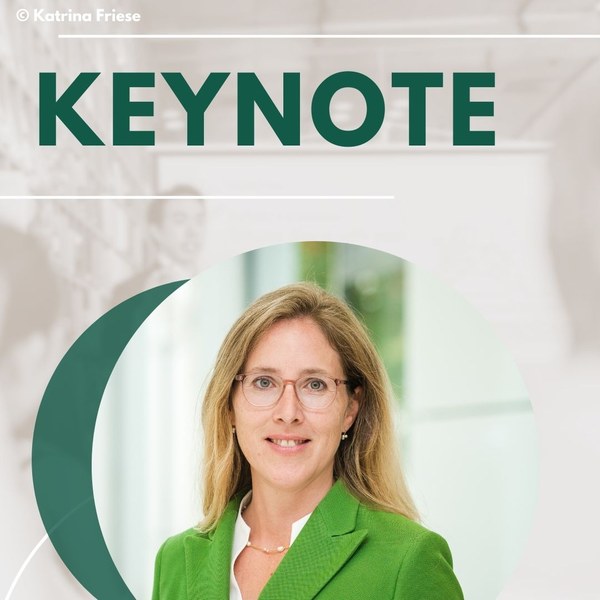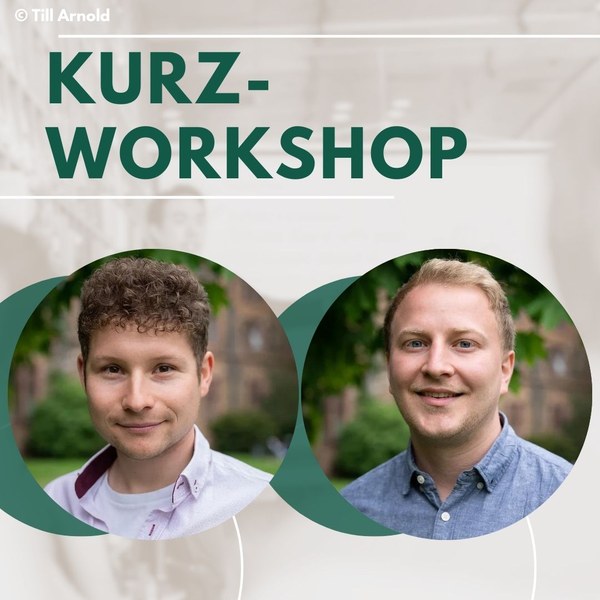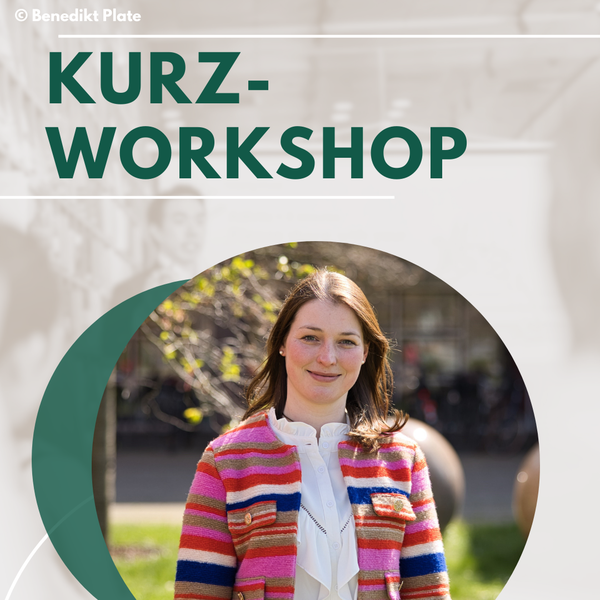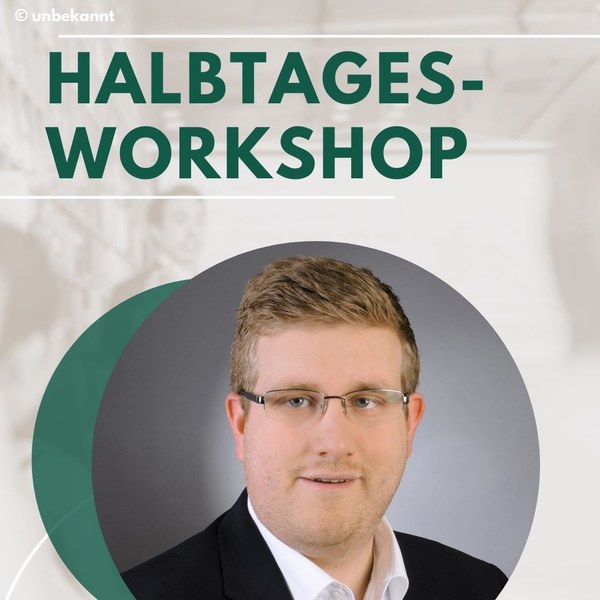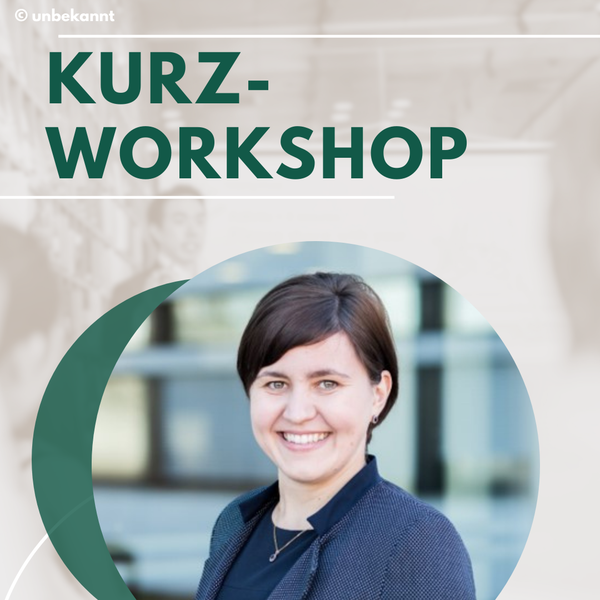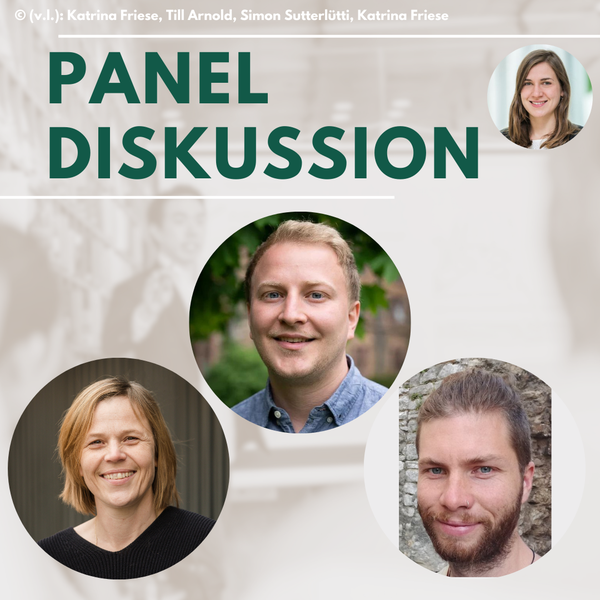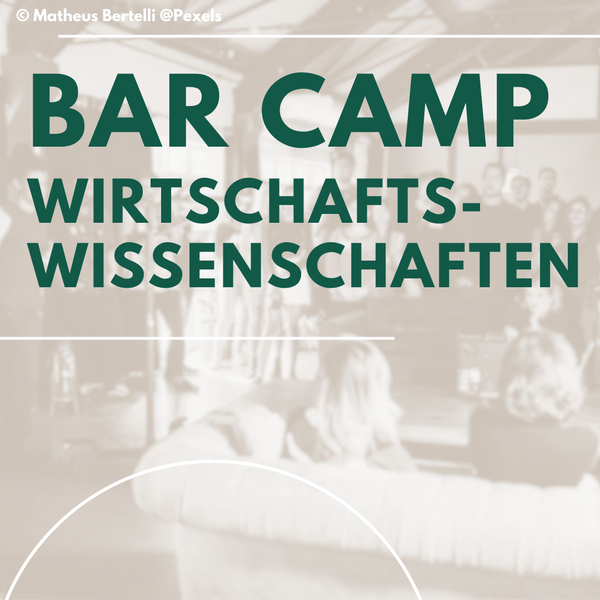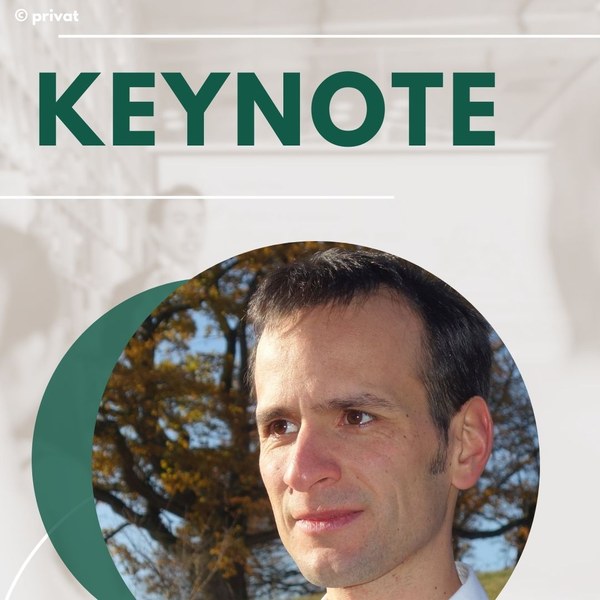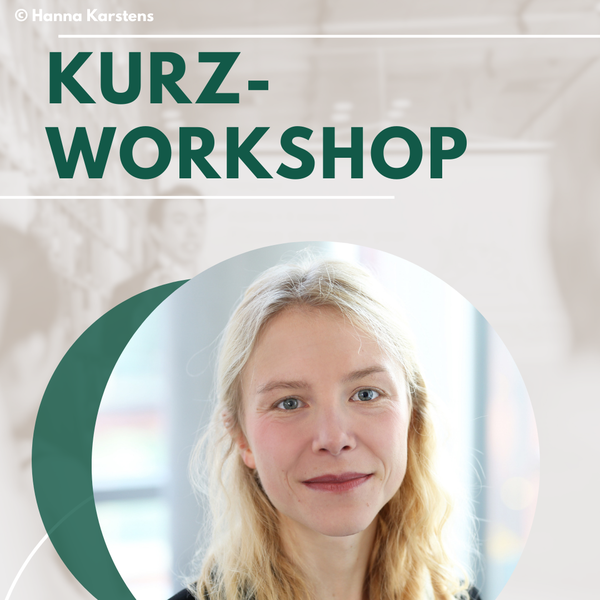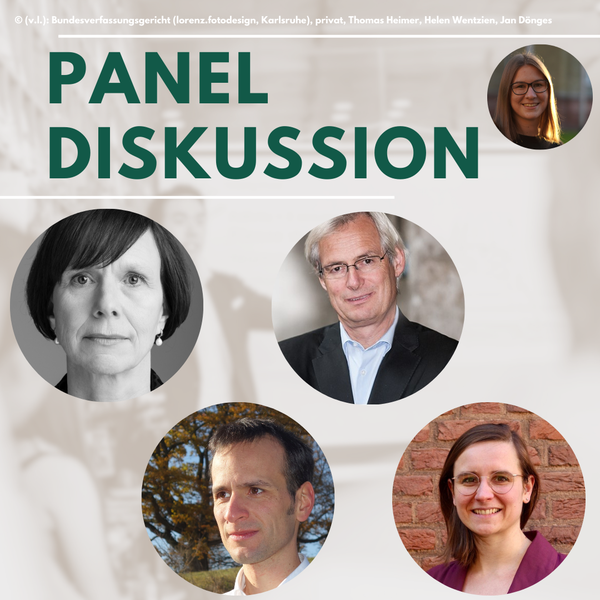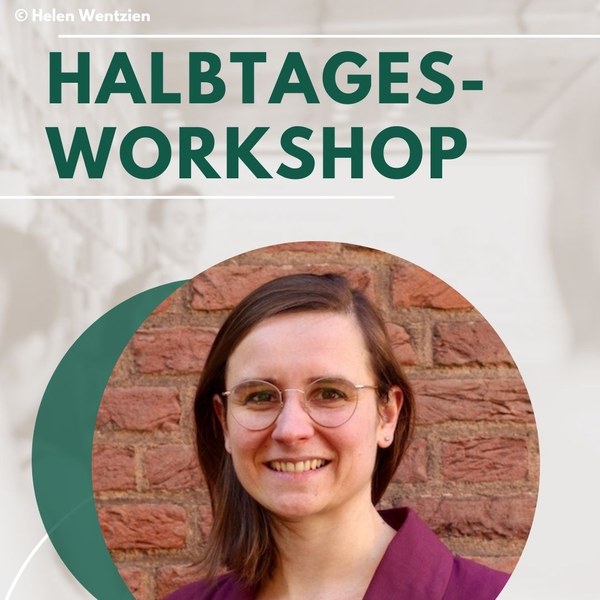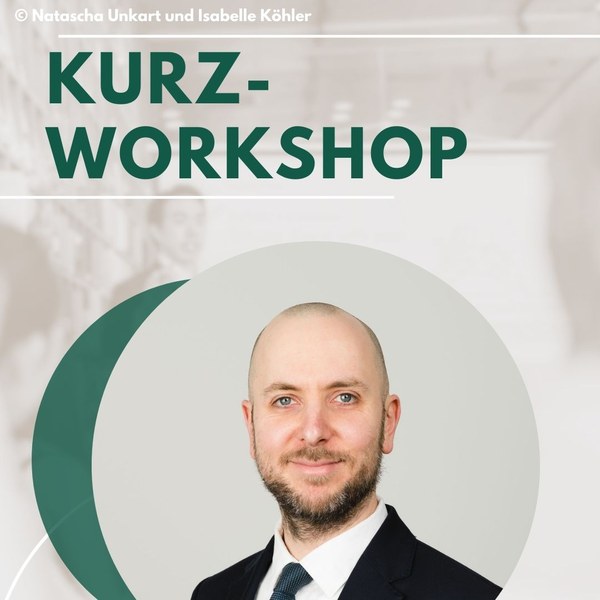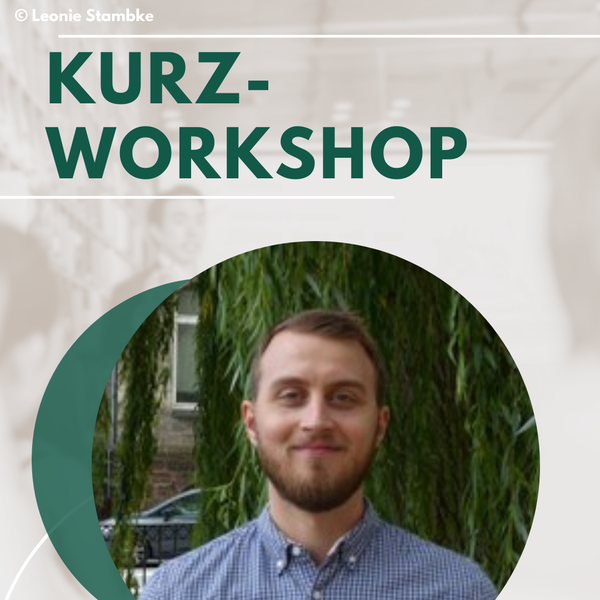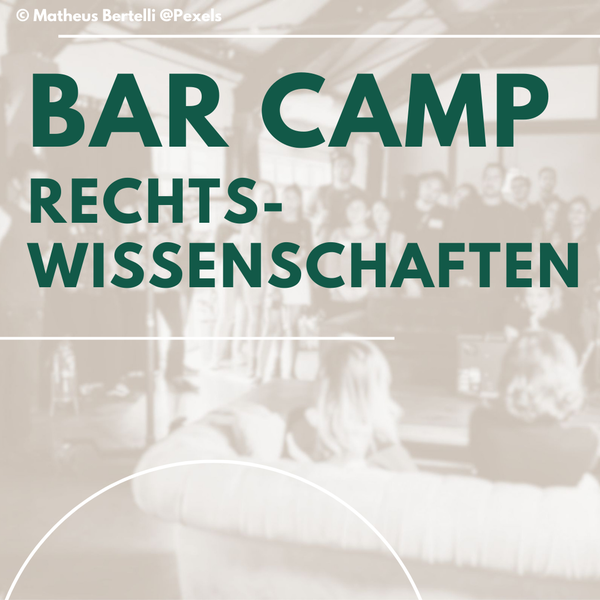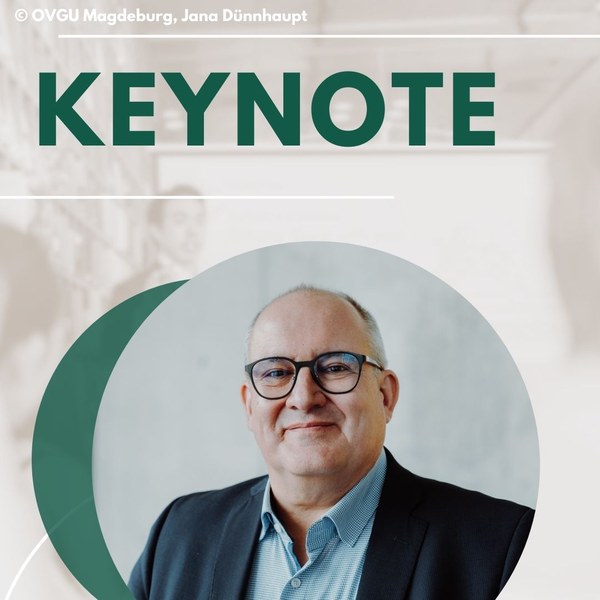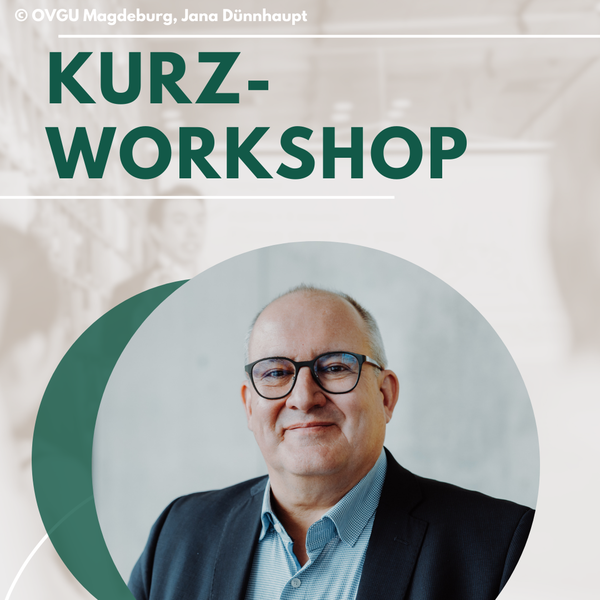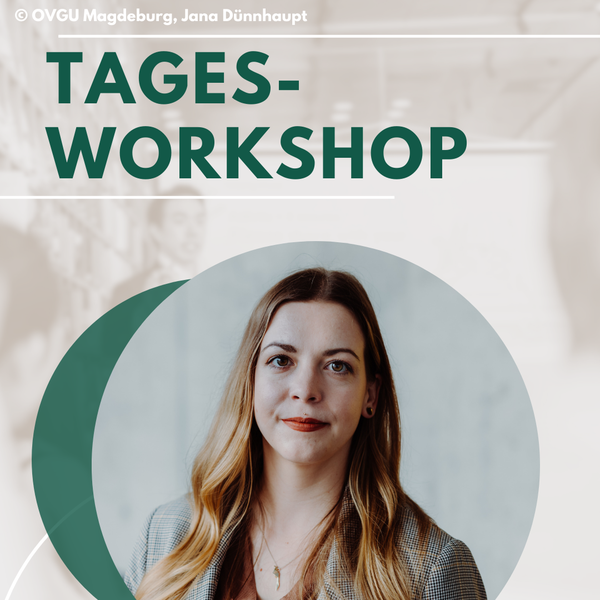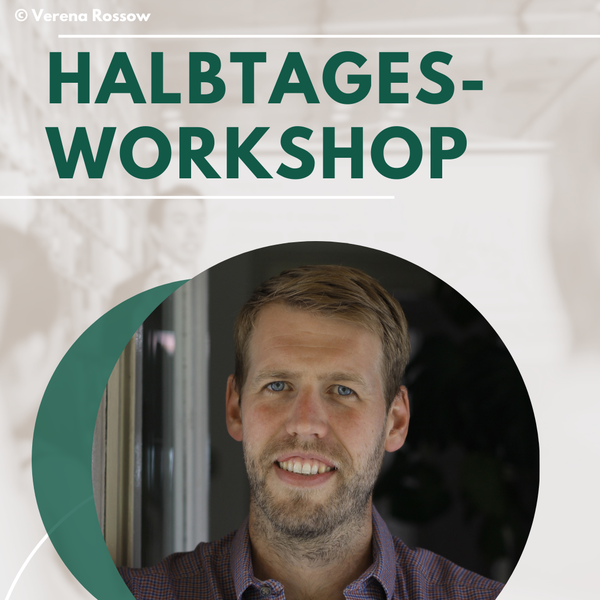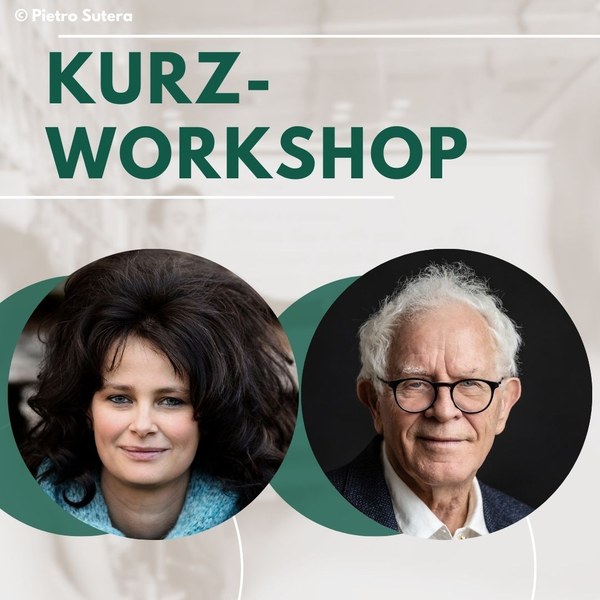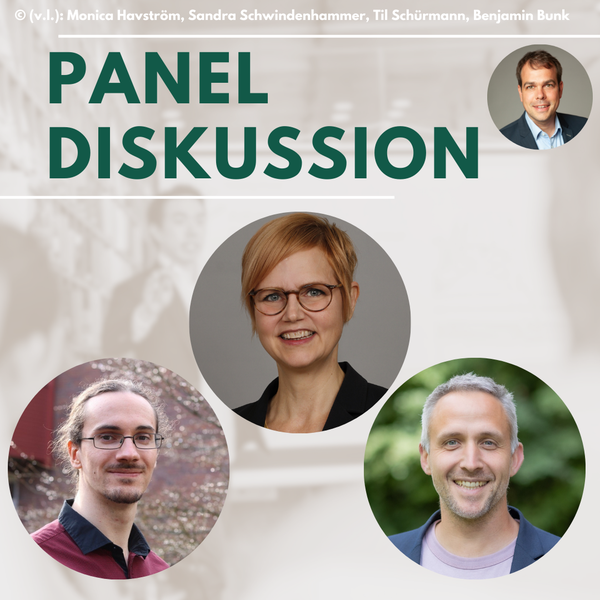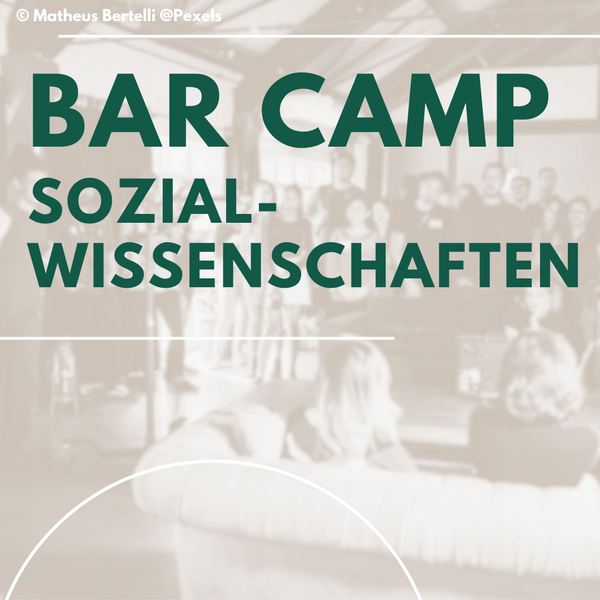Events
Monday, November 27, 2023
|
9:00 AM – 10:30 AM, Gustav-Krüger-Saal (Room 105) Keynote language: German Sustainable Business Activities and Control Structures – What Works and Why? While the topic of sustainability was relatively unknown just a few years ago, we have now gained some experience with the implementation of sustainability transformation in our economy. Not all experiences were easy, unproblematic, or positive – rather, some trade-offs have emerged that we must now learn to deal with. What does this mean for practice and research? And how can both spheres learn from each other to find efficient solutions to the pressing issues of our time? |
|
|
11.00 – 12.30 Uhr, Gustav-Krüger-Saal (Room 105) Course language: English The workshop offers in-depth insights into the concepts and potentials of the bioeconomy in the context of sustainable regional development. The bioeconomy is a multidisciplinary approach that aims at the sustainable use of biological resources to develop products, processes and services that contribute to economic development while protecting the environment. This workshop will address the principles of the bioeconomy, the sustainable use of (biogenic) resources, innovations in the bioeconomy, policy frameworks, as well as socioeconomic impacts and societal acceptance. Using case studies and practical examples on the construction sector, participants will be encouraged to understand the interrelationships between the economy, the environment and society and they will develop strategies for a sustainable bioeconomy. The bioeconomy holds tremendous potential for transforming the construction sector, which generates substantial problems for the climate and the environment, for example through the use of environmentally harmful materials such as cement, steel and sand. Both simple biobased products (e.g., timber construction, natural insulation materials) and technological innovations (e.g., wood mycelium, bioplastics) are already available on the market. Nevertheless, the transition process is slower than necessary - but why is that? In the workshop we will jointly search for answers. |
|
|
11:00 AM – 12:30 PM, Senatssaal Workshop language: German This seminar is a warm invitation to educators and researchers in economics, as well as those from other disciplines who aim to incorporate Education for Sustainable Development and sustainability into their teaching. In this workshop, participants will engage with the diversity of the sustainability concept and reflect on how it can be integrated into their teaching materials. Specifically, participants will become acquainted with selected competence lists for designing sustainable development, gain an overview of methodological and didactic competencies related to sustainability, and take a glimpse into their own teaching and learning practices. Through a combination of presentations and group work, as well as systemic visualizations, participants will create new perspectives on sustainability-focused teaching. |
|
|
1:30 PM – 5:00 PM, Senatssaal Workshop langauge: German The aim of this workshop is to introduce the fundamental concepts of the United Nations Sustainable Development Goals (SDGs). We will start with a brief historical overview of the SDGs and their connection to the Millennium Development Goals. Following that, we will discuss how sustainable development can be measured at the country level using indicators. Special attention will be given to the technical steps involved in constructing these indices, as well as the various types of data required and their availability. Additionally, we will examine the latest research findings in this field to gain a comprehensive understanding of current developments and challenges. |
|
|
1:30 PM – 3:00 PM, Gustav-Krüger-Saal (room 105) Workshop language: German The aim of this workshop is to introduce the fundamental elements of sustainable corporate management, with special consideration for climate protection and environmental law. This will include a discussion of voluntary commitments made by businesses in the fields of climate and environmental protection, as well as an examination of relevant legal precedents. The workshop will foster a shared understanding of the role of law in corporate sustainability reporting. It will begin by presenting the legal foundations (both national and European), followed by the discussion of practical examples. |
Tuesday, November 28, 2023
|
9:00 AM - 10:30 AM, Gustav-Krüger-Saal (Room 105) Discussion language: English Fostering a sustainable transformation requires us to rethink the economy and society. The way in which companies produce goods and services, but also the way people ultimately demand and consume those goods and services, is at the heart of this transformation. It is therefore crucial to ask the following questions: How can companies and consumers be agents of change for a sustainable future? Which factors and barriers should be taken into account to achieve a successful transformation? Is a sustainable transformation even possible in a capitalist world, or does it require a change of system rather than changes within the system? Given our globalized economy, we will also seek to discuss how to achieve more sustainability on a global scale, while considering the complex challenges faced by both industrialized and developing countries - towards a future in which the economy and the environment are not at odds with each other. |
|
|
11:00 AM - 12:30 PM, Gustav-Krüger-Saal (Room 105) Host language: German In this session, participants will discuss their own topics related to sustainability with a focus on Business and Economics in small groups according to the Bar Camp method. Guided by the GGS team, the usual steps of the method will be carried out: The participants will 1. collect topics in the plenary, 2. prioritise topics to be discussed in the groups, 3. exchange in a group (approx. 30 min.) on the selected topics and fix the results on the pin board, 4. present the results in the plenary. The aim of the Bar Camp is to get to know other participants through the exchange in the group, to gain new insights and to generate ideas together - perhaps even for joint projects in the future. |
|
|
|
1:30 PM - 3:00 PM, Gustav-Krüger-Saal (Room 105) Keynote language: German The concept of sustainability has also made its way into the field of law. Law is generally viewed as a vital instrument in the fight against environmental destruction and, therefore, as a tool for the transformation towards a sustainable society. Significant attention has been given to the climate decision of the Federal Constitutional Court in 2021, which, through the concept of "intertemporal freedom protection," demands the consideration of the interests of future generations, essentially adopting the concept of sustainability. However, it is often argued that the law does not adequately address the current challenges of planetary proportions and that addressing the environmental crisis requires a fundamentally new legal framework. Proposals for this include concepts like "Earth System Law" or "Rights of Nature." Starting from the current state of the sustainability discourse in law, the presentation aims to shed light on the current challenges posed to the legal system and various concepts proposed to address them. The key question guiding this discussion is the extent to which these concepts enable a just socio-ecological transformation. |
|
3:30 PM - 5:00 PM, Seminar room 315 Workshop language: English What is the economic necessity and function of law, specifically criminal law? To what extent do economic considerations and principles, as well as societal interests, play a role in its design? What does a sustainable legal regulation of (economic) environmental activity look like? The workshop "The Economic Analysis of Law and the (Criminal) Regulation of Economic Environmental Activity" combines law and economics, as well as theory and practice. In an opening session, the economic analysis of law, especially in the context of criminal law, will be presented, highlighting its main features, areas of application, and points of criticism, with a focus on the regulation of economic environmental activity. In an interactive workshop format, the topics will be further explored, discussed, and developed through case studies. Finally, a practical input on the current regulatory status and development trends will conclude the session. |
|
|
|
3:30 PM - 5:00 PM, Gustav-Krüger-Saal (Room 105) Discussion Language: German Am 24. März 2021 erklärte das Bundesverfassungsgericht Inhalte des Klimaschutzgesetzes des Bundes (KSG) für unvereinbar mit der Verfassung. Man stellte fest, dass die Regelungen des Klimaschutzgesetzes, welche die Reduktion von Treibhausgasemissionen lediglich bis ins Jahr 2030 normierten, zwar weder gegen aus Art.2 II und Art. 14 GG abgeleitete Schutzpflichten noch gegen das Klimaschutzgebot aus Art. 20a GG verstößt. Jedoch entfaltete die in § 4 KSG festgelegte Emissionsmenge eine „eingriffsähnliche Vorwirkung“ in intertemporale Freiheitsrechte, da sie bei einem Verbrauch des für Deutschland bestehenden Restbudgets, dazu führt, dass zukünftige Generationen aufgrund der hohen Last zur Emissionsreduktion in ihrer Freiheit beschränkt werden. Daher müssen die Restemissionsmengen angemessen über die Zeit verteilt werden, damit nicht eine Generation die Freiheitseinbußen allein zu tragen hat. Daraus folgt, dass auch die Reduktionserfordernisse für die Jahre nach 2030 festgelegt werden müssen. Insoweit wurde das Klimaschutzgesetz für verfassungswidrig erklärt. Dieses Urteil war 2021 vor allem auch symbolisch eine Errungenschaft der Klimabewegungen. Aber was hat das Urteil wirklich bewirkt? Hat es das Bundes-Klimaschutzgesetz (KDG) verändert oder ist es bei einem symbolischen Akt geblieben? Wie lässt sich der Beschluss von 2021 aus heutiger Perspektive rechtlich einordnen und inwiefern beeinflusst es Diskurse über Nachhaltigkeit und Nachhaltigkeitsrecht? Diese und ähnliche Fragen beleuchten die Expert:innen des Panels in der Diskussion. |
Wednesday, November 29, 2023
|
9:00 AM - 12:30 PM, Gustav-Krüger-Saal (Room 105) Workshop language: German This workshop is aimed at legal scholars and representatives from other disciplines who research law in the context of sustainability or wish to consider aspects of sustainability law in their research. The workshop's goal is to provide comprehensive knowledge about what "sustainability law" already exists and how sustainability, socio-ecological transformations, and addressing the climate crisis are already addressed in law and discussed in legal studies. This will enable participants to categorize their own research within the framework of sustainability law and identify relevant discourse strands in sustainability law for their own research. It also provides a space for discussing challenges encountered in sustainability research, such as how to incorporate research results effectively, avoid getting lost in general debates, and identify suitable communities for networking and conference participation. |
|
|
9:00 AM - 12:30 PM, Senatssaal Workshop language: German This event addresses the topic of corporate responsibility and explores legal and political aspects. Using case studies from civil society organizations like Oxfam, the workshop will initially highlight the devastating local working, environmental, and climate conditions. It will then delve into the global legal gap concerning corporate liability for human rights violations and environmental damage within supply chains. Specific cases, such as the factory fire at the kik supplier in Pakistan (Ali Enterprises), the collapse of the Rana Plaza textile factory in Bangladesh with over 1,000 fatalities, and lawsuits against Shell for oil pollution in the Niger Delta, will be examined in depth. Legal challenges and solutions will be discussed, drawing upon various existing national laws like the German and EU "Supply Chain Act." |
|
|
1:30 PM - 3:00 PM, Online Workshop language: German ESG (Environmental, Social, and Governance) and sustainability topics present new challenges for companies, but also numerous opportunities, especially for those involved in the sustainable capital market. In this workshop, "Fundamentals of Sustainable Finance," you will gain an overview of current regulations and learn how to implement them in practice. You will discover the compliance requirements, explore current market trends, and gain in-depth insights into selected areas. Topics Covered:
|
|
|
1:30 PM - 3:00 PM, Senatssaal Workshop language: English The social sciences, along with their intersections with legal studies, have increasingly engaged in discussions about ethics, safety considerations, and the societal impact of research. This workshop aims to explore the implications of these discussions for the theoretical and practical aspects of sustainable research. It begins with insights from research in peace and conflict studies and then delves into what it means to conduct sustainable research across disciplines. Participants will gain insights into relevant approaches, such as feminist, collaborative, and action research, as well as recent developments in the concept of social impact, which will be critically examined and discussed in the context of participants' own research endeavors. |
|
|
3:30 PM - 5:00 PM, Gustav-Krüger-Saal (Room 105) Host language: German In this session, participants will discuss their own topics related to sustainability with a focus on Law in small groups according to the Bar Camp method. Guided by the GGS team, the usual steps of the method will be carried out: The participants will 1. collect topics in the plenary, 2. prioritise topics to be discussed in the groups, 3. exchange in a group (approx. 30 min.) on the selected topics and fix the results on the pin board, 4. present the results in the plenary. The aim of the Bar Camp is to get to know other participants through the exchange in the group, to gain new insights and to generate ideas together - perhaps even for joint projects in the future. |
Thursday, November 30, 2023
|
9:00 AM - 12:30 PM, Gustav-Krüger-Saal (Room 105) Keynote language: English This presentation focuses on why social sciences are indispensable for sustainability research and achieving societal sustainability goals. Using political science and their own research as examples, the keynote will highlight key questions, important findings, and potential challenges in social science sustainability research that demands interdisciplinary and transdisciplinary approaches. The aim is to emphasize that the transformation toward sustainability is an open-ended political process, and political science insights are essential for a better understanding of it. The presentation will also address potential challenges in social and political sustainability research by discussing how much politics science can accommodate and to what extent sustainability researchers need to be activists. The position is taken that scientists must always be transparent about their roles and should not become activists in their capacity as scientists, even for self-preservation. |
|
|
11:00 AM - 12:30 PM, Gustav-Krüger-Saal (Room 105) Workshop language: German How many of us in academia have experienced this? Your research produces important results that are relevant to society and politics, but often, they go unnoticed, or previous strategies to communicate them have not been very successful. In this workshop, participants will first learn about factors for successful knowledge transfer from sustainability research to practice using concrete examples, based on the established Research-Integration-Utilization (RIU) model in sustainability research. Subsequently, participants will work together to develop approaches to optimize their own knowledge transfer strategies. Participants are encouraged to actively contribute their own examples and experiences and discuss strengths, weaknesses, and potential improvements based on the RIU model and its checklists. |
|
|
11:00 AM - 5:00 PM, Senatssaal Workshop language: German In this workshop, the initial focus will be on developing and discussing a shared understanding of higher education for sustainable development (ESD). Subsequently, the workshop will explore a competence development model for students as "Change Agents." The central question here is how university education can equip students with not only the necessary academic skills and fundamental subject knowledge but also specific skills for shaping a sustainable and just environment and society. As a methodological good practice example for higher education, the workshop will examine the concept of Service Learning, where theoretical learning and experiential learning through engagement are combined and reflected upon. Using this concept, the workshop will develop fictitious Service Learning tasks based on real practice partner institutions in the Central Hessen region. These tasks can be integrated into the university seminars at JLU. |
|
|
1:30 PM - 5:00 PM, Gustav-Krüger-Saal (Room 105) Workshop language: German The decisions needed to drive the transition to a climate-neutral economy challenge established modes of production and lifestyles at their core. Consequently, climate policy regulation, both at the global and national levels, is not solely a coordination problem. Instead, it gives rise to numerous new distribution conflicts in which conceptions of justice, interests in maintaining the status quo, and the need for rapid and profound change collide. In this workshop, international and national distribution conflicts will be examined. Participants will discuss ideas of a "just transition" and engage in a small role-play on European climate policy. |
Friday, December 1st, 2023
|
9:00 AM - 10:30 AM, Senatssaal Workshop language: German The Ethiopian government has set a goal to move beyond the country's agrarian-based economy and transform into a modern industrial nation in the near future. This transformation is expected to create hundreds of thousands of jobs for the young and growing population. A key role in this industrialization process is played by the textile and apparel sector. The Ethiopian government has successfully attracted numerous international investors who have established themselves in Ethiopia's modern industrial parks in recent years. However, this relatively young sector faces significant challenges, including high labor turnover, which threatens the economic success of companies. Over a three-year research project funded by the German Federal Ministry for Economic Cooperation and Development (BMZ), Reimer Gronemeyer and Michaela Fink have delved into the causes of the high labor turnover. The project has produced numerous interviews with textile workers, former textile workers, executives, communities, representatives of interest groups, and development cooperation partners, among others. The research findings shed light on the working conditions in Ethiopia's textile industry, with a focus on the perspectives of the predominantly female workforce. The discussion of the research results leads to the important and complex question of how the German federal government can support the creation of fair and sustainable jobs in countries like Ethiopia. |
|
|
9:00 AM - 10:30 AM, Gustav-Krüger-Saal (Room 105) Discussion language: German The sustainability turn is an undertaking that affects all facets of society, as well as transformation can only be achieved, if a variety of actors and perspectives are considered successfully. It is therefore hardly surprising that, research in sustainability should be interdisciplinary. But that sounds easier as it is: Distinct perspectives, unique findings and disciplinary discourses are (or where) constitutive for science to move forward and deepen knowledge. It is (or was) crucial for young scientists to build their unique profile in their respective communities. Still, coming from “Social Sciences, Business, Economics and Law”, the scientific sustainability discourse seems to be dominated by perspectives from the natural sciences. Thus, we want to discuss at the GGS „How can interdisciplinary (research) projects on sustainability succeed?” By looking into the debate around how interdisciplinary (research) projects on sustainability can succeed, we can therefore address several connected questions for our future. What are the principles that shall guide future societies? Which understanding of science do we need? Perhaps, successful interdisciplinary research needs to find new ways of working together, new ways to establish expertise, to recognise it, and to communicate it. |
|
|
11:00 AM - 12:30 PM, Gustav-Krüger-Saal (Room 105) Host language: German In this session, participants will discuss their own topics related to sustainability with a focus on Social Sciences in small groups according to the Bar Camp method. Guided by the GGS team, the usual steps of the method will be carried out: The participants will 1. collect topics in the plenary, 2. prioritise topics to be discussed in the groups, 3. exchange in a group (approx. 30 min.) on the selected topics and fix the results on the pin board, 4. present the results in the plenary. The aim of the Bar Camp is to get to know other participants through the exchange in the group, to gain new insights and to generate ideas together - perhaps even for joint projects in the future. |

